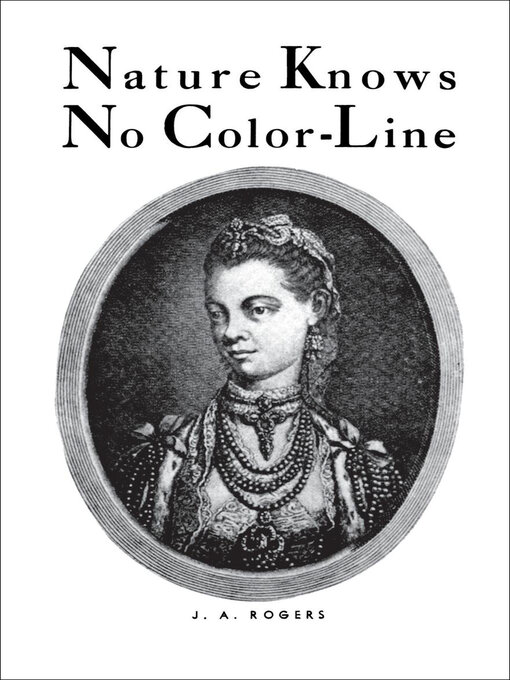- Available now
- New eBook additions
- New kids additions
- New teen additions
- Most popular
- Try something different
- See all
-
Description
-
Details
In Nature Knows No Color-Line, originally published in 1952, historian Joel Augustus Rogers examines the origins of racial hierarchy and the color problem. Rogers was a humanist who believed that there were no scientifically evident racial divisions—all humans belong to one "race." He believed that color prejudice generally evolved from issues of domination and power between two physiologically different groups. According to Rogers, color prejudice was then used a rationale for domination, subjugation and warfare. Societies developed myths and prejudices in order to pursue their own interests at the expense of other groups. This book argues that many instances of the contributions of black people had been left out of the history books, and gives many examples.
"Most contemporary college students have never heard of J.A Rogers nor are they aware of his long journalistic career and pioneering archival research. Rogers committed his life to fighting against racism and he had a major influence on black print culture through his attempts to improve race relations in the United States and challenge white supremacist tracts aimed at disparaging the history and contributions of people of African descent to world civilizations." —Thabiti Asukile, "Black International Journalism, Archival Research and Black Print Culture," The Journal of African American History

OverDrive Read
- ISBN: 9780819575517
- Release date: January 21, 2022
